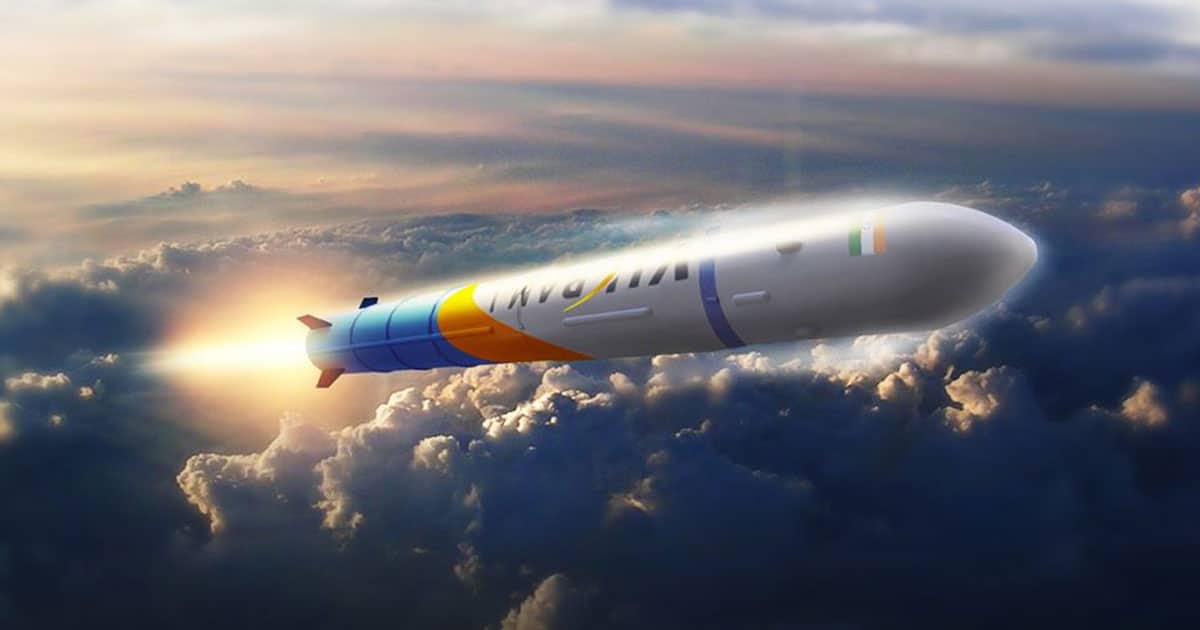Joining the likes of SpaceX, this Wednesday, Skyroot Aerospace, India’s first private space launch startup, successfully test-fired upper stage rocket engine named ”Raman”.
The launch marks the long-needed boost to the private sector space exploration in India. The Hyderabad based startup is the first Indian private company to demonstrate the capability to build a homegrown rocket engine.
It was deliberately scheduled on August 12 to honor Vikram Sarabhai, father of the Indian Space Programme, on his birth anniversary.
No better day than Dr. Vikram Sarabhai’s birthday to announce our successful test firing of our Vikram-1 Launch vehicle’s upper stage Engine-Raman.
Four Raman engines with multi-start capability produce a thrust of 3.4kN and inserts multiple satellites into orbit. pic.twitter.com/uF9ETTBSTc
— Skyroot Aerospace (@SkyrootA) August 12, 2020
Raman, named after veteran Indian Physicist C V Raman, is India’s first 100 percent 3D-printed Bi-Propellant Liquid Rocket Engine injector. This reduced the overall mass by 50 percent, reduced the total number of components, and lead time by 80 percent compared to traditional manufacturing.
The rocket’s engine is capable of multiple restarts enabling them to insert various satellites into multiple orbits in a single mission, said the CEO, Pawan Kumar Chandana to a news agency.

Skyroot – India’s first private space company
Aerospace scientists Pawan Kumar Chandana, Naga Bharath Daka, and other engineers who previously worked at the Indian Space Research Organization (ISRO) founded the company two years back in Hyderabad. They intend to make India, internationally competent in space engineering.
“The idea of Skyroot was born from the need of having an internationally competent company with the capability of complementing ISRO’s capacity to meet our nations Space aspirations. In this process, we are taking baby steps into our eventual goal of pushing the boundaries of spaceflight to uplift our civilization out into the cosmos,” wrote the CEO in the company’s blog.
Skyroot’s focus is on the “rapid development of complex aerospace systems with lean use of resources.
Mukesh Bansal, founder of Myntra, Solar Industries, Vedanshu Investments, and few other angel investors participated in the early-stage funding of Skyroot. About $4.3 million has been raised by the startup to date, including that from space and defense contractor Solar Industries, and it is currently going through the funding process again in hopes of securing another $15 million by 2021.
Future Ventures
In the next six months, Skyroot will test-fire two full stages of its rocket under development.
The company is currently focused on developing its very first launch vehicle, the “Vikram-I,” which is in the process of being manufactured and is on track for its first launch in December 2021. This successful test-fire of the upper-stage engine is an important step in validating this key component that will handle the final insertion of any payload satellites into their target orbit once Vikram-I is operational.
This will be followed by Vikram-2 and Vikram-3, to be tested sometime around 2022-2023, offering cost-competitiveness with existing, larger rideshare rockets already available from private companies, including SpaceX.

